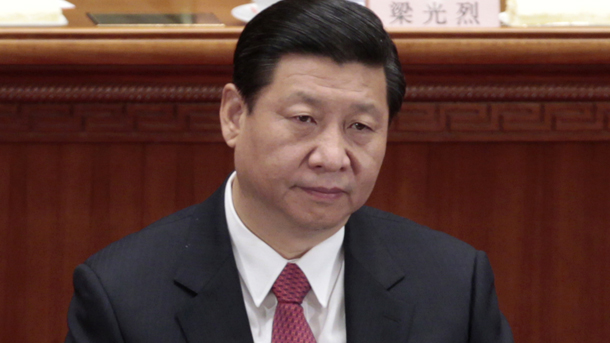BEIJING — China’s new leader Xi Jinping is commanding wayward Communist Party cadres to purify themselves of corruption, and he’s summed it up in a pithy slogan as Mao Zedong might have done: Look in the mirror, take a bath.
China’s leadership wants to show a cynical public that it’s modernizing and serious about graft, but it appears to be favoring a top-down ideological campaign — with study sessions, self-criticism and propaganda — over imposing real checks on power. That worries many observers, not only because they doubt it will work, but because the tactic appears to be ripped out of the playbook of Mao, the founder of Communist China.
“Winning or losing public support is an issue that concerns the Communist Party’s survival or extinction,” Xi said in a message via teleconference on Tuesday to top party cadres gathered in groups in their provinces and cities nationwide.
The officials, who were nearly uniformly dressed in summer-casual, open-collar white shirts, sat in rows and dutifully studied sheets of paper in their hands as Xi spoke to them from a large, rectangular screen above.
State broadcaster CCTV repeatedly aired footage of the meetings starting late Tuesday. Party newspapers and websites proclaimed that Xi will fight “formalism, bureaucracy, hedonism and extravagance.”
Xi said his “rectification” campaign will focus on self-purification, encapsulated in the phrase “look in the mirror, straighten your attire, take a bath and seek remedies,” the official Xinhua News Agency said. In practical terms, party organs and officials at or above the county level are to “reflect on their own practices and correct their misconduct.”
Xi’s decision to roll out the campaign in such a high-profile way hews him closely to Mao. Observers say that is not an encouraging sign for those who hoped the new leadership would consider substantive political reforms and bolster China’s rule of law.
Mao led a bloody two-decade revolution that ended with the establishment of Communist China in 1949, then held power until his death in 1976. His policies plunged the nation into years of famine and led to the deaths of tens of millions. Xi’s father was a Communist revolutionary alongside Mao until he fell out of favor with the increasingly paranoid leader in 1962.
“Coming from the leader of such a huge country, it is a bit worrisome and shocking that he apparently is really a true believer of some of Mao’s approaches,” said Willy Lam, a Chinese politics expert and professor at Chinese University of Hong Kong.
Many Chinese still recall the chaos of the Cultural Revolution, the 1966-76 ideological campaign Mao launched to purge the bureaucracy of pragmatic “capitalist roaders” and restore ideological purity to the revolution.
Youths were “sent down” to the countryside to learn from peasants — including Xi, who spent seven years as a farmer in a northern province. Millions were persecuted in the upheaval in which people were denounced by one another — including parents by their children — and labeled and victimized.
The “self-purification” plan announced this week might produce a purge of its own. Such ideological campaigns are widely perceived as a means for new party leaders to weed out their political opponents, who might be accused of foot-dragging in failing to meet the campaign’s goals.
Lam said Xi “is resorting to these metaphysical political campaigns of a bygone era which have proven already that attempts to brainwash people and change their worldview will not work.”
“I’m afraid the reaction of most party members would be quite cynical,” he added. “They’ll put up a show, but whether this purge will improve the moral quality of party members and cadres is another question.”
Pressure on the party to fix corruption and malfeasance is high. As Xi rolled out the new campaign, he was competing for the attention of a public riveted by the trial of a former city official at the center of a sex tapes scandal in which officials allegedly were extorted by real estate developers after being secretly filmed in liaisons with hired women.
“This campaign is necessary because the (Communist Party) as a ruling party has been struggling to deal with popular distrust — popular cynical, critical, even confrontational reaction to everything the party says or does,” said Ding Xueliang, a Chinese politics expert at Hong Kong University of Science and Technology.
He added, however, that the campaign is likely to achieve little in the long term as long as it remains a top-down effort in which the party is expected to police itself. “If they are re-using Mao Zedong-era slogans to deal with today’s problems, no matter how much resources are put into the campaign, the outcome will be very tiny,” he said.
The party’s resistance to political reforms leaves Xi with few options, said Hu Xingdou, a political economist at the Beijing Institute of Technology.
“The best solution to improving the relationship between people and officials is democracy. Let people supervise the government, so they can’t abuse their power,” Hu said. “But since political reform can’t be pushed forward because of strong opposition from vested interest groups, they have to use Mao’s tactics instead.”
















